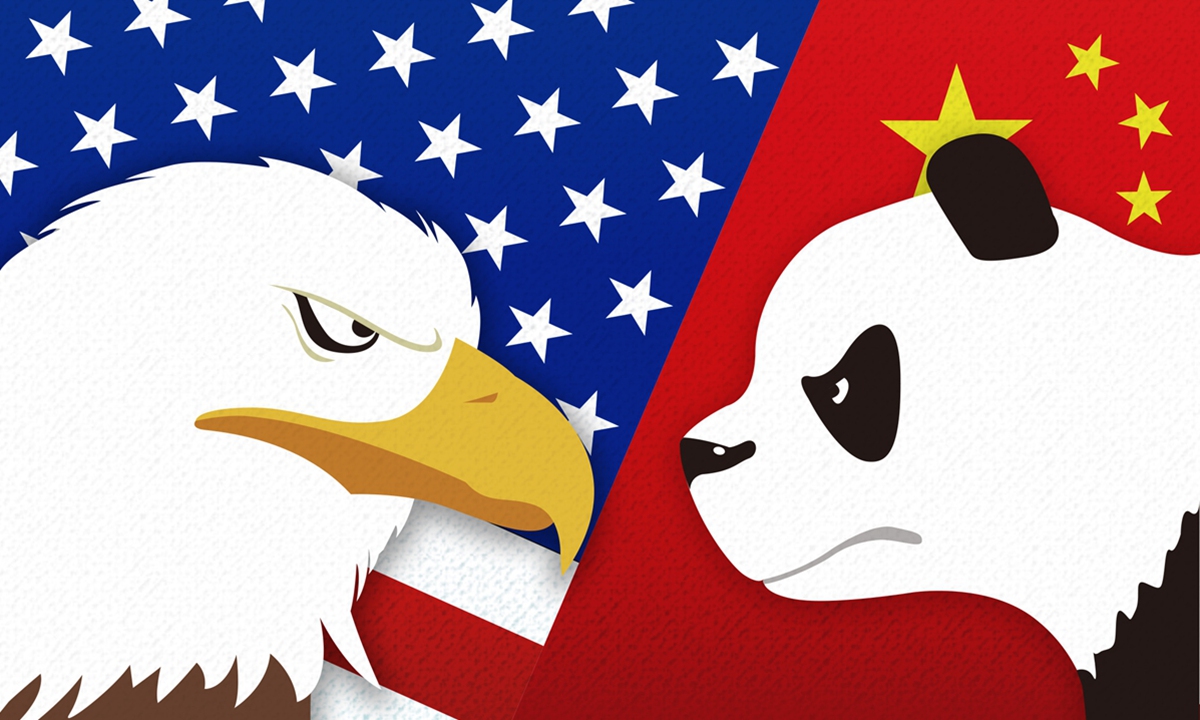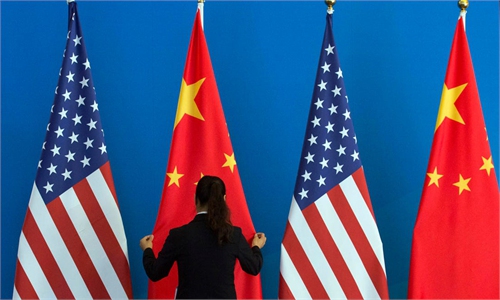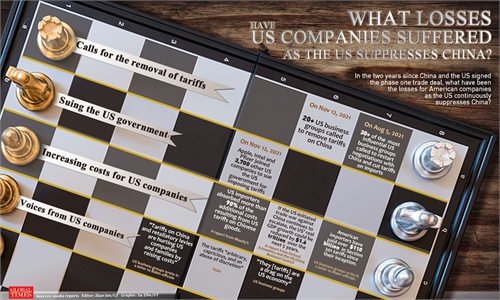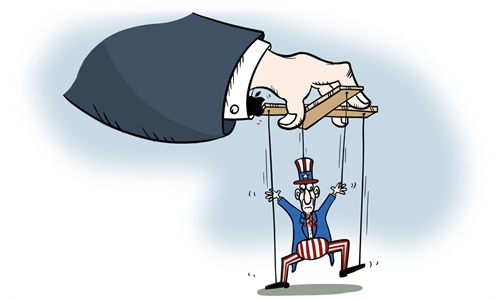
China US Illustration: Liu Rui
One year into Joe Biden's presidency, the US has been struggling with the COVID-19 epidemic and economic recovery. The Biden administration has also tried to form a foreign policy that could be called "the Biden Doctrine," the core of which is strategic competition with China.The Biden administration continues the strategic positioning and general framework of the Trump administration in terms of China policy. It even further expands its strategic perception of China, calling China the world's "biggest geopolitical test of the 21st century" and "the only country with the economic, diplomatic, military, and technological power to seriously challenge the stable and open international system."
At the same time, the Biden administration has proactively adjusted its approach and methods in its tentative engagement with China. As a result, a toolkit was formed to stage a strategic competition with China that meets the interests and values of Biden and the Democratic Party. Washington attempts to call on all US government departments, the whole of US society, and even the world to fight against Beijing in all possible aspects.
In general, the Biden administration sees its China policy as a key issue in coordinating the US' domestic and foreign affairs. It hopes to meet the actual needs of the middle class at home while trying to reshape Washington's global hegemony. But one year on, how much of its idea has been realized? I am afraid the answer is not enough.
First, the past 50 years that featured a complex network system have formed US policy and relations with China. Thus, it is clearly biased and detrimental for the Biden administration to try to replace this model with simple, fierce strategic competition.
This can be proven in the recent developments in China-US relations. After testing and challenging China's bottom line, the Biden administration seems to begin to understand that the US cannot bear the severe consequences of the constant decline of China-US relations or even a "new cold war." Therefore, the US always has to resume dialogue and even cooperate with China at the end of the day.
Second, the US currently needs the Biden administration to prioritize reorganizing domestic affairs. However, input in domestic affairs should be based on the actual needs of the country. It should not work as a tool for slogans to compete with China.
Facts have demonstrated despite that the US public holds a more and more negative opinion toward China, voters still care more about whether the US government has made effective efforts to promote the people's well-being. They do not see being tough on China as the most important criteria to measure the performance of one administration. Therefore, as the Biden administration keeps getting tougher on China, its approval rating continues to drop. This shows that Biden's China policy doesn't translate into his desired appeal at home.
Third, there is a major difference between Biden's China policy and Trump's: The former focuses on enhancing Washington's "position of strength" with the help of other countries. To be more specific, it tries to form alliances and coteries. However, does the international community agree with such an approach? Is the world ready to fall into another cold war?
The answer is obvious: Most countries are not willing to take sides between China and the US. I believe the US government is well aware of this simple reality. Now it only needs to make an effort to change its course rather than move further and further down the wrong path that could easily lead to failure.
There were ups and downs in China-US relations in 2021. All the "ups" came from the dialogue and contacts between the two countries, while the "downs" started with Washington's irresponsible behavior toward Beijing. The future of China-US relations depends on how sincere the Biden administration is in helping the two countries move in the same direction.
Fifty years ago, a new era of China-US relations began after then US president Richard Nixon visited China. This is a great achievement. If Biden wants to become a president to be remembered in history, he should learn from Nixon instead of ruining the hard work of his predecessors.
The author is deputy director of the Department for Asia-Pacific Studies at the China Institute of International Studies. opinion@globaltimes.com.cn



